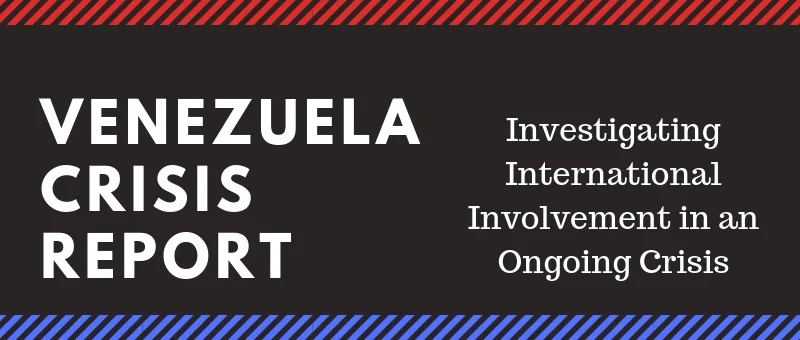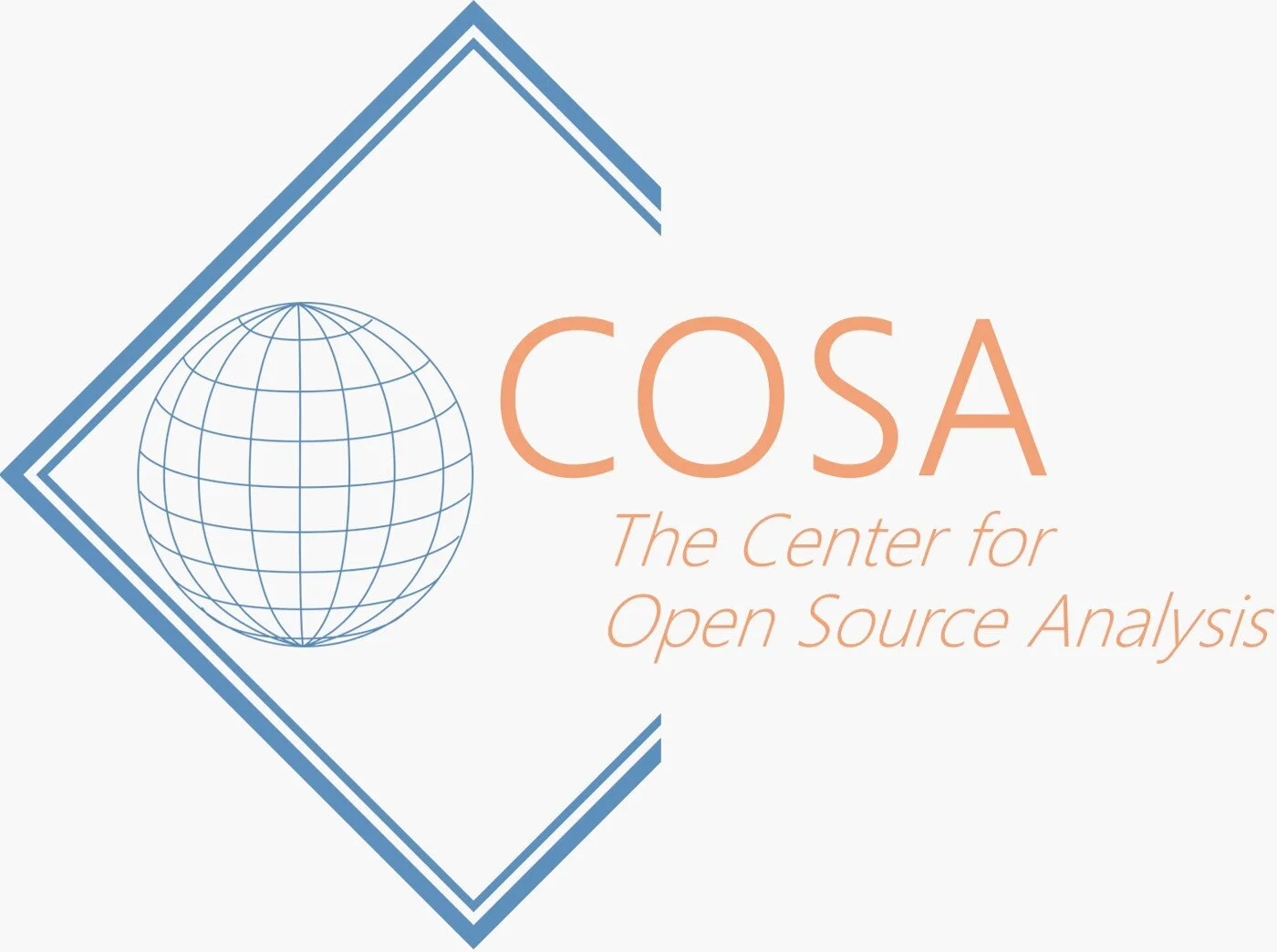Saudi Arabia: Direct Military Retaliation Against Iran Unlikely Following Oil Attacks
Saudi Arabia is unlikely to directly retaliate militarily against Iran in response to the recent attacks on Saudi Arabia’s Aramco oil facilities. On September 14, 2019, two major oil facilities in eastern Saudi Arabia were attacked by drones and cruise missiles. [i] Yemen’s Houthi rebels have claimed responsibility for the attack, however officials from Saudi Arabia, the United States, France, Germany, and Britain have accused Iran for the strikes. [ii, iii] The probability of direct military retaliation is likely to increase if more attacks are conducted against the Kingdom by Iran or Iranian-backed proxy groups.
The Aramco attacks disrupted production of nearly half the country’s crude output, almost 5% of the global oil supply; although estimates indicate the facility will resume full output by the end of September. [iv, v]
Saudi Foreign Minister al-Jubeir stated Saudi Arabia plans to “look at all options—diplomatic options, economic options, and military options” and would “take the appropriate measures based on the results of the [Saudi] investigation.” [vi]
Al-Jubeir stated that Saudi Arabia will not wait with “our hands tied while the Iranians continue to attack us,” indicating the Kingdom’s preparedness to respond if further provoked. [vii]
Due to its vulnerability to attacks and overall military weaknesses, Saudi Arabia is likely to pursue response through low-risk alternatives or mediation. Direct military retaliation is unlikely due to Saudi dependence on U.S. support coupled with Riyadh’s perception of the United States as reluctant to engage with Iran. [viii] [ix] This perception is very likely driven by statements from various U.S. officials, including President Trump and Secretary Pompeo. [x]
Saudi Arabia declared that they “are willing and able” to respond, but have not yet directly retaliate, indicating a hesitance for this option. [xi, xii]
Despite Saudi Arabia’s well-funded military, multiple military analysts assess Saudi forces do not train, plan, or perform at a high standard. [xiii, xiv]
U.S. Secretary of State Mike Pompeo has stated that the United States’ “mission set is to avoid war,” while President Trump has emphasized that he would “like to avoid” a military conflict while supporting the prospect of mediation. [xv, xvi]
If its allies do not respond, Saudi Arabia is likely to retaliate with increased attacks on Iranian proxies or continuing mediation attempts with Tehran. Continued targeting of Iranian proxies in Yemen and Syria is likely the Saudi’s primary tactic of response. Riyadh is unlikely to respond via cyber-attacks, due to its relative weakness in this field, although the likelihood of cyber operations will likely increase if mediation attempts fail.
Striking Iranian-backed proxy groups is very unlikely to result in response for Tehran, making this a desirable option for Riyadh. [xvii]
Saudi Arabia has been building its cyber capabilities in response to cyber-attacks it has suffered, however, the country is likely unprepared to engage in cyber warfare. [xviii, xix]
The United States and Saudi Arabia have contacted Pakistani Prime Minister Imran Khan to serve as a mediator in the conflict, Khan immediately reached out to Iranian President Hassan Rouhani. [xx]
Sources
[i]. “Saudi Oil Attacks: All the Latest Updates.” Saudi Arabia News | Al Jazeera. Al Jazeera, September 22, 2019. https://www.aljazeera.com/news/2019/09/saudi-oil-attacks-latest-updates-190916102800973.html.
[ii]. “The Attacks on Saudi Arabia Merit a Firm Response.” The Economist. The Economist Newspaper, September 21, 2019. https://www.economist.com/leaders/2019/09/21/the-attacks-on-saudi-arabia-merit-a-firm-response.
[iii]. Kirkpatrick, David. “Who Was Behind the Saudi Oil Attack? What the Evidence Shows.” The New York Times. The New York Times, September 16, 2019. https://www.nytimes.com/interactive/2019/09/16/world/middleeast/trump-saudi-arabia-oil-attack.html.
[iv]. Rapier, Robert. “Why The Attacks In Saudi Arabia Are A Really Big Deal.” Forbes. Forbes Magazine, September 22, 2019. https://www.forbes.com/sites/rrapier/2019/09/16/why-the-attacks-in-saudi-arabia-are-a-really-big-deal/#1812378dde1a.
[v]. “Saudi Arabia to Restore Full Oil Output by next Week: Source.” Reuters. Thomson Reuters, September 23, 2019. https://www.reuters.com/article/us-saudi-aramco/saudi-arabia-to-restore-full-oil-output-by-next-week-source-idUSKBN1W80W9.
[vi]. “Saudi Oil Attacks: All the Latest Updates.” Saudi Arabia News | Al Jazeera. Al Jazeera, September 22, 2019. https://www.aljazeera.com/news/2019/09/saudi-oil-attacks-latest-updates-190916102800973.html.
[vii]. “A Conversation With Minister Adel Al-Jubeir of Saudi Arabia.” Council on Foreign Relations. Council on Foreign Relations, September 24, 2019. https://www.cfr.org/event/conversation-minister-adel-al-jubeir-saudi-arabia-0.
[viii]. “Statement from the Saudi Ministry of Foreign Affairs.” The Royal Embassy of Saudi Arabia. The Royal Embassy of Saudi Arabia, September 16, 2019. https://www.saudiembassy.net/news/statement-saudi-ministry-foreign-affairs.
[ix]. Wintour, Patrick, and Julian Borger. “Saudi Offers 'Proof' of Iran's Role in Oil Attack and Urges US Response.” The Guardian. Guardian News and Media, September 18, 2019. https://www.theguardian.com/world/2019/sep/18/saudi-oil-attack-rouhani-dismisses-us-claims-of-iran-role-as-slander.
[x]. Pamuk, Humeyra. “Pompeo Says U.S. Mission Is to Avoid War with Iran but Measures in Place to Deter.” Reuters. Thomson Reuters, September 22, 2019. https://www.reuters.com/article/us-saudi-aramco-usa-iran/pompeo-says-us-mission-is-to-avoid-war-with-iran-but-measures-in-place-to-deter-idUSKBN1W70HF.
[xi]. “Saudi Arabia Says It's 'Willing and Able' to Respond to Iran. Is It?” Los Angeles Times. Los Angeles Times, September 20, 2019. https://www.latimes.com/world-nation/story/2019-09-20/saudi-arabia-says-its-willing-and-able-to-respond-to-iran-is-it.
[xii]. “‘We Are after Punishment’ - Iran Threatens ‘Full Destruction of Any Aggression’ If Attacked.” Task & Purpose. Task & Purpose, September 22, 2019. https://taskandpurpose.com/iran-threatens-war-saudi-arabia.
[xiii]. Wolf, Andy. “Locked but Unloaded: Saudi Arabia Not Ready for War despite Having Top of the Line Weapons.” War Is Boring, September 17, 2019. https://warisboring.com/locked-but-unloaded-saudi-arabia-not-ready-for-war-despite-having-top-of-the-line-weapons/.
[xiv]. Cooper, Helene. “Attacks Expose Flaws in Saudi Arabia's Expensive Military.” The New York Times. The New York Times, September 19, 2019. https://www.nytimes.com/2019/09/19/us/politics/saudi-military-iran.html.
[xv]. Pamuk, Humeyra. “Pompeo Says U.S. Mission Is to Avoid War with Iran but Measures in Place to Deter.” Reuters. Thomson Reuters, September 23, 2019. https://www.reuters.com/article/us-saudi-aramco-usa-iran/pompeo-says-us-mission-is-to-avoid-war-with-iran-but-measures-in-place-to-deter-idUSKBN1W70HF.
[xvi]. Pérez-Peña, Richard, David Kirkpatrick, and Michael Crowley. “Trump Says Iran Appears Responsible for Saudi Attack but That He Wants to Avoid War.” The New York Times. The New York Times, September 16, 2019. https://www.nytimes.com/2019/09/16/world/middleeast/saudi-oil.html.
[xvii]. Hawthorne, Emily. “Q&A: Why Did Iran Attack Saudi Arabia?” Stratfor. Stratfor, September 20, 2019. https://worldview.stratfor.com/article/qa-why-did-iran-attack-saudi-arabia.
[xviii]. Hathaway, Melissa, Francesca Spidalieri, and Fahad Alsowailm. “Kingdom of Saudi Arabia Cyber Readiness at a Glance.” Potomac Institute, September 2017. https://potomacinstitute.org/images/CRI/CRI2_0_SaudiArabiaPofile.pdf.
[xix]. Guzanskey, Yoel, and Ron Deutch. “How Prepared Is Saudi Arabia for a Cyber War.” Institute for National Security Studies, July 10, 2019. https://www.inss.org.il/publication/how-prepared-is-saudi-arabia-for-a-cyber-war/.
[xx]. “Saudi Oil Attacks: All the Latest Updates.” Saudi Arabia News | Al Jazeera. Al Jazeera, September 22, 2019. https://www.aljazeera.com/news/2019/09/saudi-oil-attacks-latest-updates-190916102800973.html.






